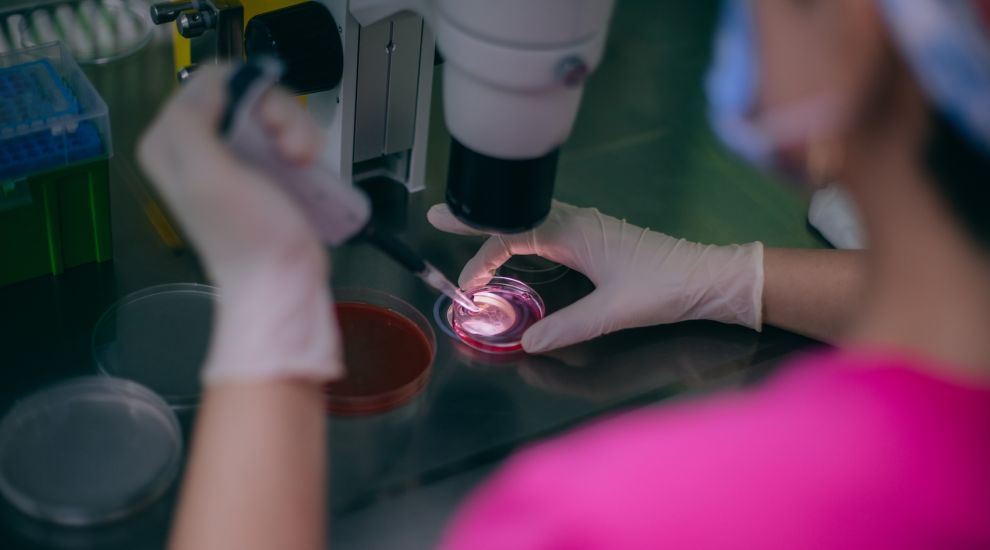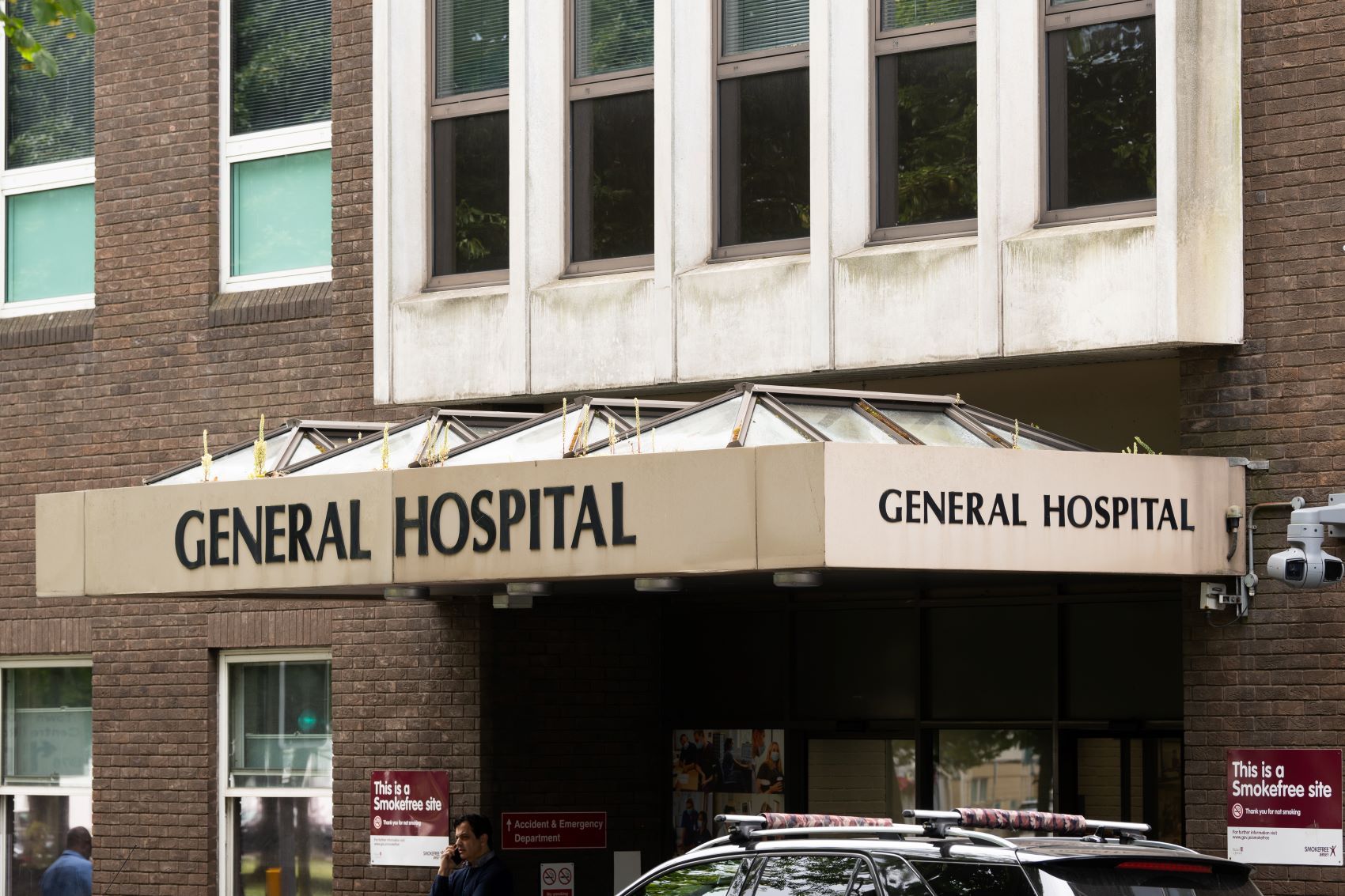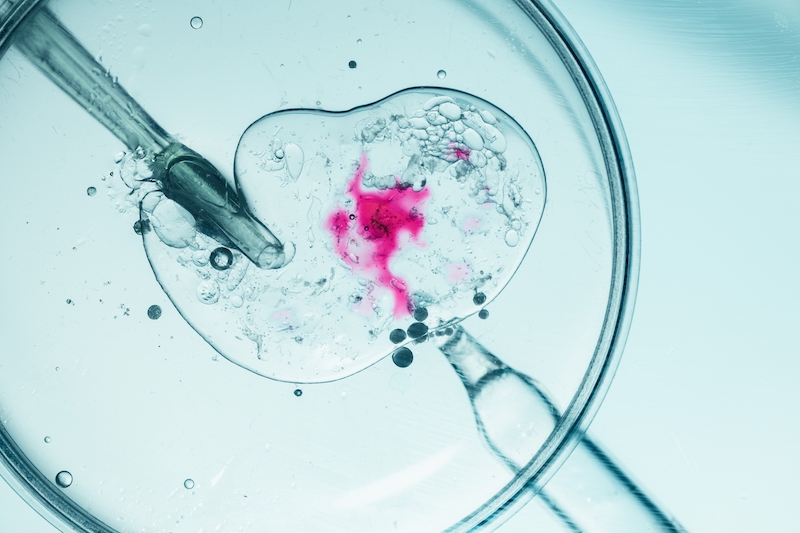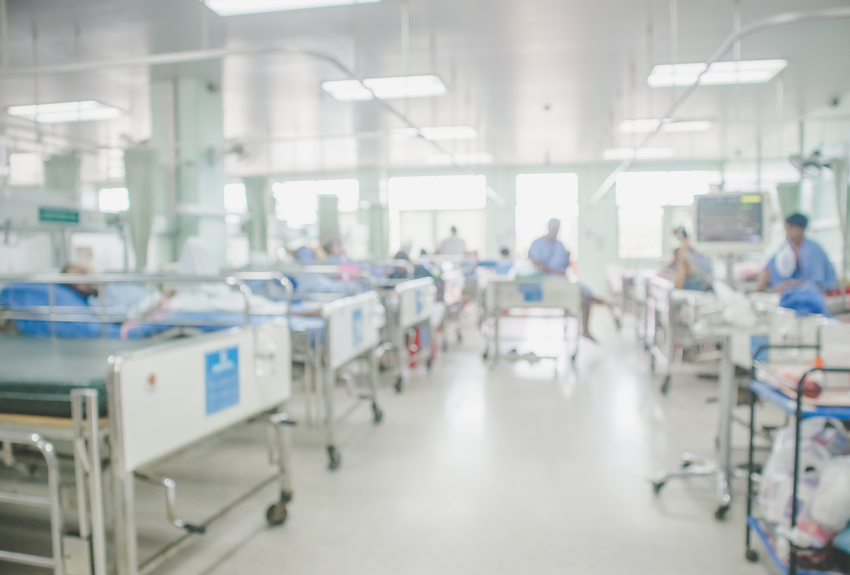


Experts have called for a review of Jersey's assisted reproduction laws after raising concerns that there is no limit on the number of times that a sperm donor can be used in the island.
The issues were highlighted by fertility charity Tiny Seeds, which was asked by the Health Scrutiny Panel to outline what steps the Government should take to support islanders dealing with infertility.
Changes to the Government's funding model for In Vitro Fertilisation (IVF) treatment are set to be introduced from 1 January 2025 after being approved by the States Assembly as part of the Budget debate last week.

Pictured: The new eligibility criteria for IVF will be introduced from 1 January 2025.
But ahead of the discussion, Tiny Seeds suggested that more needs to be done in terms of the island's legislation.
The charity called for a review of laws related to donor conception, donor register, and assisted reproductive technology.
Tiny Seeds said that this is particularly important if ever considering opening a stand-alone IVF clinic in Jersey.
"However, this still applies now to those using artificial insemination using donor sperm on the island," the charity explained.
Tiny Seeds also highlighted the fact that there is currently no donor registry, or cap on the number of times a donor can be used in Jersey.

Pictured: Tiny Seeds is a local charity providing support for everyone affected by infertility or who needs the help of fertility treatment to conceive.
In the UK, one person’s sperm donation can be used among a maximum of 10 families, according to the Human Fertilisation and Embryology Authority.
There is no set limit to the number of children who can be born among each family, but donors can decide to lower their limit for donations to families.
A Netflix series released earlier this year raised questions about the ethical issues around donating sperm to multiple recipients.
'The Man with 1,000 Kids' focused on Dutch sperm donor Jonathan Meijer who was accused of fathering over five hundred children and defrauding vulnerable families around the world.
Meijer was banned from donating sperm in the Netherlands in 2017, after it emerged he was the father of 102 children from donations made to 11 clinics around the country.
He continued donating in other countries until 2023, when one woman and a foundation supporting her filed a civil suit against Meijer, arguing he was increasing the risk of incest for his children.
In his testimony, Meijer admitted having between 550 and 600 children. However, the court said he may have fathered up to 1,000 across several continents.
The judge ultimately banned Meijer from donating sperm to new parents, and said he would be fined €100,000 (£85,000) per donation if he did so.
Following queries from Express about the lack of regulation in Jersey, the Health Department said that Government “would always advise Jersey residents who use assisted reproduction services to only consider treatment, or purchase donor sperm, in jurisdictions who possess robust legislation”.

Pictured: Jersey residents are advised "to only consider treatment, or purchase donor sperm, in jurisdictions who possess robust legislation".
The department explained: “Jersey does not have an equivalent to the UK’s Human Fertilisation and Embryology Act 2008 which provides for controls related to assisted reproduction.
“Previous Ministers have not prioritised legislation in this area as the majority of Jersey couples seeking assisted reproduction services do so in the UK where the Act applies, or in other jurisdictions, where other equivalent laws apply.
“Whilst it is recognised that this does not address all potential issues, such as the purchase of donor sperm by Jersey residents from single donors, it does work to reduce the majority of associated risks.”
Health noted that some related matters have been separately provided for with, for example, the Children and Civil Status (Amendment) (Jersey) Law 2024 provides for parental responsibility for same-sex parents.
In response to concerns about the lack of laws around assisted reproductive technology, the Environment Department confirmed that legislation to introduce independent regulation of Jersey’s hospital services – including the Assisted Reproduction Unit (ARU) – is due to be published and lodged in the States Assembly by the end of the year.

Pictured: Assisted reproductive technology (ART) refers to the treatments and procedures that aim to achieve pregnancy.
In a statement, the department said: “Under these proposals, the ARU would be required to provide its services in accordance with care standards underpinned by the Regulation of Care (Standards and Requirements) (Jersey) Regulations 2018 and would be inspected against those standards by the Jersey Care Commission at least once every three years.
“This legislation is currently being finalised and, subject to ministerial approval, is due to be published and lodged in the States Assembly by the end of the year.”
In a separate submission to the Health Scrutiny Panel, the Women’s Health Hub also raised concerns about the lack of "infertility law" in Jersey.
Gynaecology consultant Neil Mclachlan and GP Jessica Langtree-Marsh – both women's health experts – called for "infertility law to support couples within the workplace".
They explained: "Infertility is a disease affecting young working couples with responsibilities.
"Could fertility appointments be given the same status as antenatal appointments and provision given for time out of work?”

Pictured: "Infertility is a disease affecting young working couples with responsibilities."
Tiny Seeds also called for more workplace support and statutory rights for those undergoing fertility treatment.
In response, Social Security Minister Lyndsay Feltham said: “The work that Tiny Seeds are doing is incredibly important.
“I welcome the introduction of their Fertility Friendly Workplace Toolkit and I’d urge all employers to get behind this initiative, which aligns with the flexible working rights in Employment Law.
“The Employment Law gives all employees the right to request flexible working arrangements.
“I would expect employers to meet with their obligations under the law and use flexible working arrangements so that treatment can be received when it’s needed.
“I’m pleased to see that the Toolkit explicitly encourages employers to consider the positive benefits of flexible working, where that can be agreed.”
"Disappointing" lack of LGBTQ+ consultation on proposed IVF criteria
Same-sex couples could be hit with ‘gay tax’ under new IVF funding plans
Concerns existing parents will miss out under IVF funding plans
Fertility charity criticises IVF access criteria as "limiting with clear gaps"
Concern that IVF proposition amendments will result in "reduced offer for patients"
Politicians agree to reform "archaic" fertility treatment funding model
Comments
Comments on this story express the views of the commentator only, not Bailiwick Publishing. We are unable to guarantee the accuracy of any of those comments.